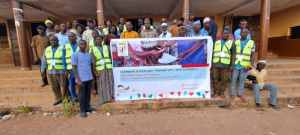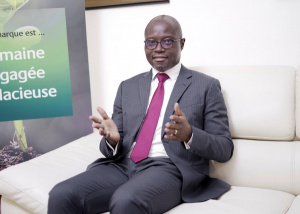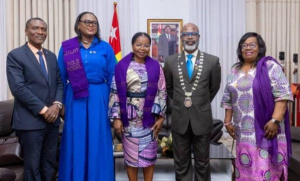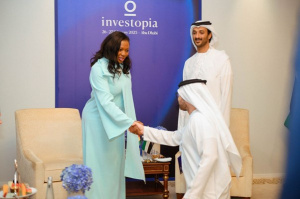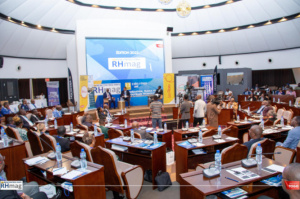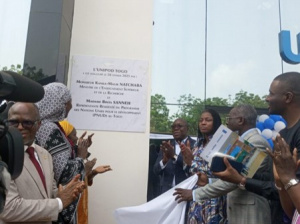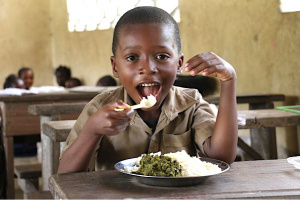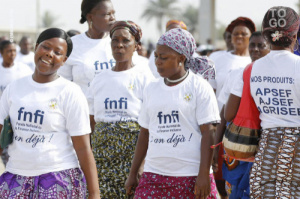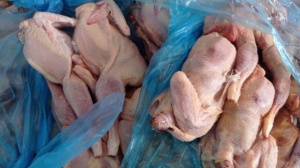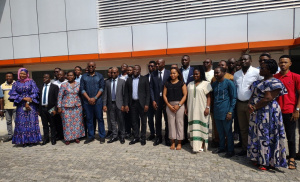Togo First
Togo: Doufelgou 1 Launches Census Targeting Non-Tax Revenues Taxpayers
On March 3, Doufelgou 1 kicked off a general census of taxpayers of non-tax revenues. The campaign aims to bolster the municipality’s financial capacities.
The census is backed by the ProDeG IV program, implemented by GIZ. It will effectively equip the municipality with an up-to-date geographic database of taxpayers.
The operation runs from March 4-11, 2025. Shopkeepers, artisans, service providers, and owners of bars, hotels, and restaurants are targeted. The goal is to identify new revenue streams, improve monitoring of taxpayers, optimize local tax collection, and increase budget transparency.
The municipality has recruited and trained 20 agents to carry out the census. According to Mayor Tchemi Tchambi Tchapkro, the ongoing campaign will improve financial management and ensure better funding for public services.
Doufelgou 1 is located in the Kara region, northeastern Togo. Its capital district is Niamtougou.
This article was initially published in French by Ayi Renaud Dossavi
Edited in English by Ola Schad Akinocho
Lire aussi:
WAEMU: Togo Takes Helm of Federation of Professional Associations of Banks
Togo has taken over the leadership of the Federal Council of the Federation of Professional Associations of Banks and Financial Institutions of the WAEMU (FAPBEF-UEMOA). Guy Martial Awona, Managing Director of Orabank-Togo, officially assumed the role on March 4, 2025, during a meeting in Lomé.
Guy Martial Awona succeeds Senegalese Boccar Sy, whose term has ended. Over the next two years, Awona will focus on steering reforms in the West African Economic and Monetary Union (WAEMU) banking sector to address pressing economic challenges.
As chairman, Awona is tasked with stabilizing the financial system, improving access to credit for small and medium-sized enterprises, and enhancing financial inclusion through digitization. His agenda also includes modernizing banking services to meet international standards and strengthening financial security systems.
Collaboration with WAEMU member states will be key to achieving these goals. Commenting on the appointment, Togo’s Minister of Economy and Finance, Georges Barcola, emphasized the importance of maintaining open dialogue with regional authorities to ensure progress.
The FAPBEF-UEMOA is committed to helping banks and financial institutions in the WAEMU innovate and address the region’s unique economic needs.
This article was initially published in French by Esaïe Edoh
Edited in English by Ola Schad Akinocho
CILT Considers Opening Office in Togo
The Chartered Institute of Logistics and Transport (CILT) is negotiating to open an office in Togo. CILT Chairman, Chief Teete Owusu-Nortey, met with Prime Minister Victoire Tomégah-Dogbé in Lomé last week to discuss the possibility.
Based in London for over a century, CILT is a professional organization that unites transport and logistics professionals in nearly 100 countries. Its mission consists of improving the logistics and transport sectors by supporting professionals. CILT wants to leverage Togo's strengths to enhance local skills and develop a strong logistics industry.
"The Prime Minister was very receptive to our proposal, which aims to build the capacity of logistics and transport players while improving connectivity," CILT Chairman, Chief Teete Owusu-Nortey declared. The project fits into Togo's national plan to make logistics a key part of its economic growth.
In recent years, the Togolese government has indeed taken several steps to make the country a regional logistics hub. These include projects to improve roads, modernize ports, and expand Lomé International Airport.
This article was initially published in French by Esaïe Edoh
Edited in English by Ange Jason Quenum
Investopia 2025: Minister Manuella Santos Promotes Togo in Abu Dhabi
Togo showcased its investment opportunities at the 4th Investopia 2025 forum in Abu Dhabi on February 26-27. The country focused on industries like manufacturing, energy, artificial intelligence, and infrastructure. Manuella Santos, Togo's Minister for Investment, led the presentation.
Une rencontre avec S.E @ABT3891 Abdullah bin Touq Al Marri, Ministre de l’Economie des Émirats Arabes Unis, a permis de réaffirmer la politique d’ouverture du #Togo, sous le leadership du Président de la République SEM @FEGnassingbe et de mobiliser les investisseurs au profit du… pic.twitter.com/LuN7o58VXS
— Manuella M. Santos (@Manu_EllaSantos) March 1, 2025
Santos primarily highlighted Togo's strategic location in Africa, its modern logistics, and its role as a regional hub. On the sidelines of the forum, she met with Abdullah bin Touq Al Marri, the United Arab Emirates (UAE) Minister of Economy, to discuss Togo's efforts to attract foreign investment.
They explored the possibility of signing a reciprocal investment promotion and protection agreement between the two nations. “We exchanged views on areas of partnership that would benefit both nations,” Santos shared on her X account.
Manuella Santos also met with institutions involved in finance, agribusiness, and energy—sectors important to Togo's economy.
This article was initially published in French by Esaïe Edoh
Edited in English by Ange Jason Quenum
Lomé Hosts Human Capital Regional Meetings Again
On March 13 and 14, 2025, Togo’s capital, Lomé, will host a regional roundtable on human capital. This will be the second time the country will host the event. The first round of the Country meetings, which took place in December 2022, was also held in Lomé.
Initialement prévues pour les 12 et 13 Décembre 2024, les Rencontres Pays Capital Humain, Grand rendez-vous des acteurs nationaux et internationaux de la Gestion des Ressources Humaines se tiendra finalement les 13&14 mars prochains à Lomé. #CapitalHumain #Formation #Togo pic.twitter.com/5ISkhNbhmq
— Expertise Locale Togo (@ExpertLocalTg) January 17, 2025
Themed “Building Human Capital for an Ambitious Togo”, the coming edition is expected to gather over 100 participants from several countries. Talks will focus on education, training, small business growth, talent management, digitalization, artificial intelligence, and corporate social policies.
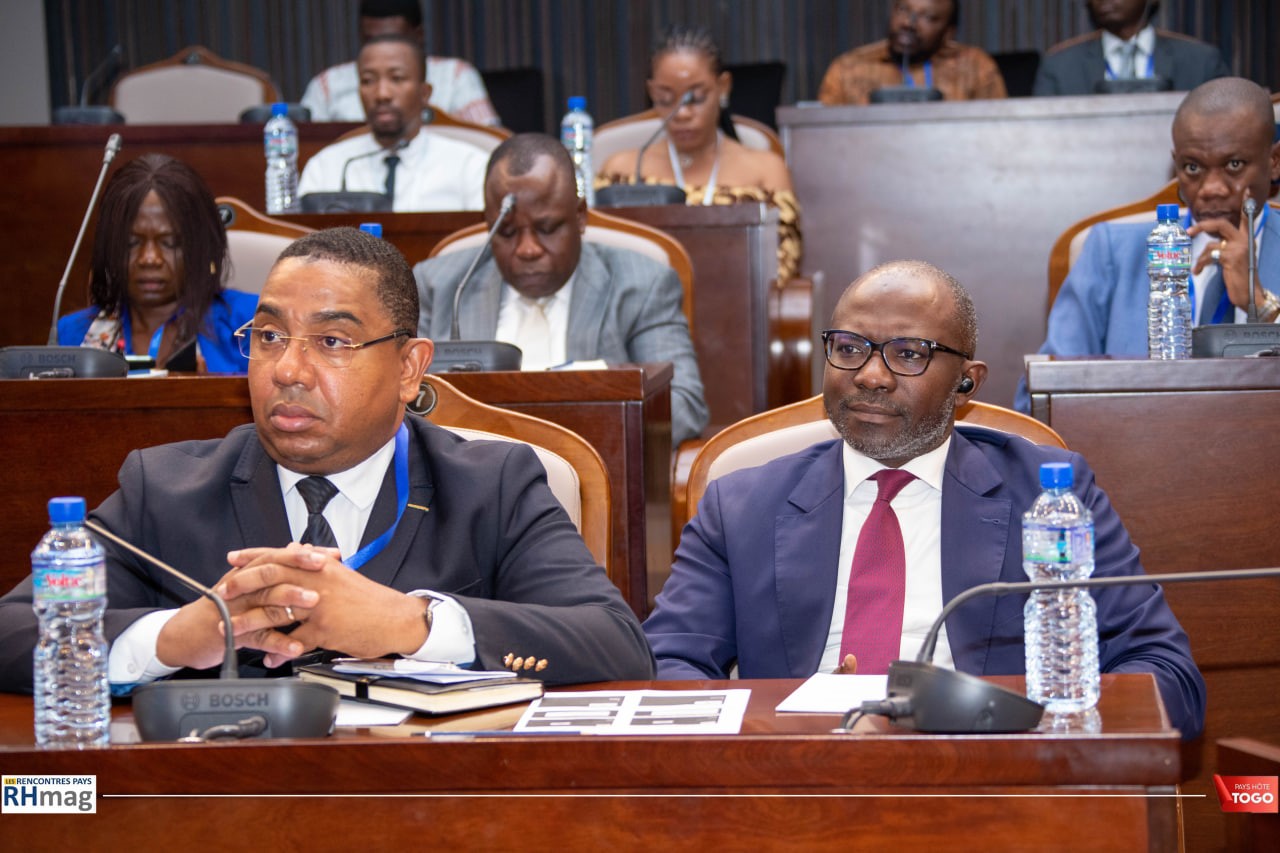
"The Country meetings were created to imagine and 'design' the most appropriate solutions for the players of today and tomorrow. They are genuine frameworks for exchanges and experience-sharing between decision-makers from the public, para-public, and private sectors, and students, whose aim is to foster the emergence of human capital that meets development ambitions", explained Expertise Locale, promoter of the event.
Togo: University of Lomé Inaugurates New Innovation and Technology Department
The University of Lomé has a new department dedicated to innovation and technology: UniPod-Togo. The facility, spanning 1,200 m2, was inaugurated on February 28, 2025, by the Minister for Higher Education and Research, Kanka-Malik Natchaba, and UNDP Resident Representative in Togo, Binta Sanneh.
The UNDP’s Timbuktoo initiative funded UniPod-Togo with over CFA1 billion ($1.6 million). This is the 14th facility of its kind in Africa. It includes eight laboratories, three dedicated spaces, an amphitheater, and a technology transfer office.
M. Osinbajo a pu constater l’effectivité de la fin des travaux de construction du bâtiment ainsi que l’installation des équipements en cours. Il s’est félicité de la diversité des espaces/activités ainsi que des efforts garantissant la soutenabilité et l'opérationnalisation. pic.twitter.com/t6n9stVui0
— Pnud Togo (@PnudTogo) July 25, 2024
“In a constantly changing world, innovation remains the key to meeting global and national challenges, and Togo in particular, with its dynamic, enterprising youth, must not be left behind,” said Binta Sanneh, UNDP Resident Representative.
Minister Natchaba said the project aligns with the government’s goal to leverage higher education to drive innovation and development. He added that UniPod-Togo will stimulate entrepreneurship and support the creation of start-ups that can transform Togo’s economy.
Indeed, the facility is designed to be a nest for developing new ideas, mentoring, training networking, and a place where entrepreneurs and young people can secure financing.
This article was initially published in French by Esaïe Edoh
Edited in English by Ola Schad Akinocho
Togo: Germany Backs School Feeding Program in North with €11M
Togo recently received €11 million from Germany to improve feeding in schools.
The funds, provided through the German Development Bank (KfW), will help the World Food Programme (WFP) feed 28,000 children in 110 schools spread across the Kara and Savanes regions. Some of these schools host refugees and displaced people.
The project includes fixing school kitchens, installing better stoves, creating gardens and mills to support local farming, and teaching children, parents, and teachers about nutrition.
“We're creating a system that connects local farming to school meals, which helps development,” said Dr. Moïse Ballo, WFP country director in Togo.
Commenting on the initiative, German Ambassador Dr. Claudius Fischbach emphasized its importance for food security and stability in the area.
It is worth noting that Togo's Ministry of Agriculture, local groups, the FAO, and the WFP, plan to help 8,250 small farmers and 1,000 women in cooperatives.
This article was initially published in French by Ayi Renaud Dossavi*
Edited in English by Ola Schad Akinocho
Togo: World Bank and Civil Society Organizations Discuss Women's Empowerment
The Togolese capital hosted this week, on February 25 and 26, the Regional Civil Society Forum on Girls' Education and Women's Economic Empowerment in West and Central Africa. Held at the 2 Février Hotel, the forum was organized by the World Bank and the Brazzaville Foundation.
The event aimed to help civil society groups promote education and financial independence for women. Participants identified key actions to take, networked, and shared experiences. For civil society organizations (CSOs), it was the opportunity to discuss collaboration opportunities with World Bank officials.
Committed to Women’s Empowerment
Togo's efforts to empower women are timely and recognized internationally. "Today, it is impossible to conceive of the development of our continent without women, because they are in the majority," said Sandra Ablamba Johnson, Minister and Secretary General of the Presidency of the Togolese Republic, at the World Bank and IMF Annual Meetings in October 2024. Togo also excels in gender equality, scoring 97.5 points in the World Bank's "Women, Business and the Law" report—the highest in sub-Saharan Africa.
Togo: Government Impose Rule on Fish and Poultry Importers to Boost Local Production
Togo has introduced a new rule for importers of fish, poultry meat, and related products. Effective February 20, 2025, importers must buy at least 10% of their requested quantity from local suppliers before they can get permission to import. This rule was announced by the Ministry of Fisheries and Animal Resources.
According to the Ministry, the measure aims to support local producers, improve food security and reduce reliance on imports.
The move also aims to help local producers who do not produce enough to meet local demand and struggle to find local buyers.
The government seeks to drive up local production through the recent measure. The move also aims to help better organize these industries. Similar rules were tried before for poultry imports, but they were hard to enforce.
This article was initially published in French by Esaïe Edoh
Edited in English by Ola Schad Akinocho
Togo: Trade Ministry Launches E-commerce Course for SMEs
To boost local entrepreneurs’ e-commerce skills, Togo’s trade ministry launched a 3-day workshop targeting SMEs on February 25, 2025. Participants were introduced to practical aspects of e-commerce.
The participants, nearly 30 business owners, learned about boosting online sales, managing digital payments, and handling logistics. They were equipped with strategies to improve their presence on e-commerce platforms and become more competitive.
"Over these three days, we will discuss the rules and technical aspects of e-commerce," explained Harold Kpodar, the e-commerce consultant leading the training. "We will also focus on communication and marketing strategies crucial for online success. Additionally, we will explore the opportunities offered by Zlecaf for Togolese entrepreneurs."
Comlan Yakpey, the Secretary General of the Ministry of Commerce, representing the Minister, emphasized that entrepreneurs need to master online commerce tools to fully benefit from the AfCFTA.
Togo's e-commerce sector is thriving, thanks to better internet access. Today, over 20% of the population uses e-commerce, up from just 6% in 2018.

